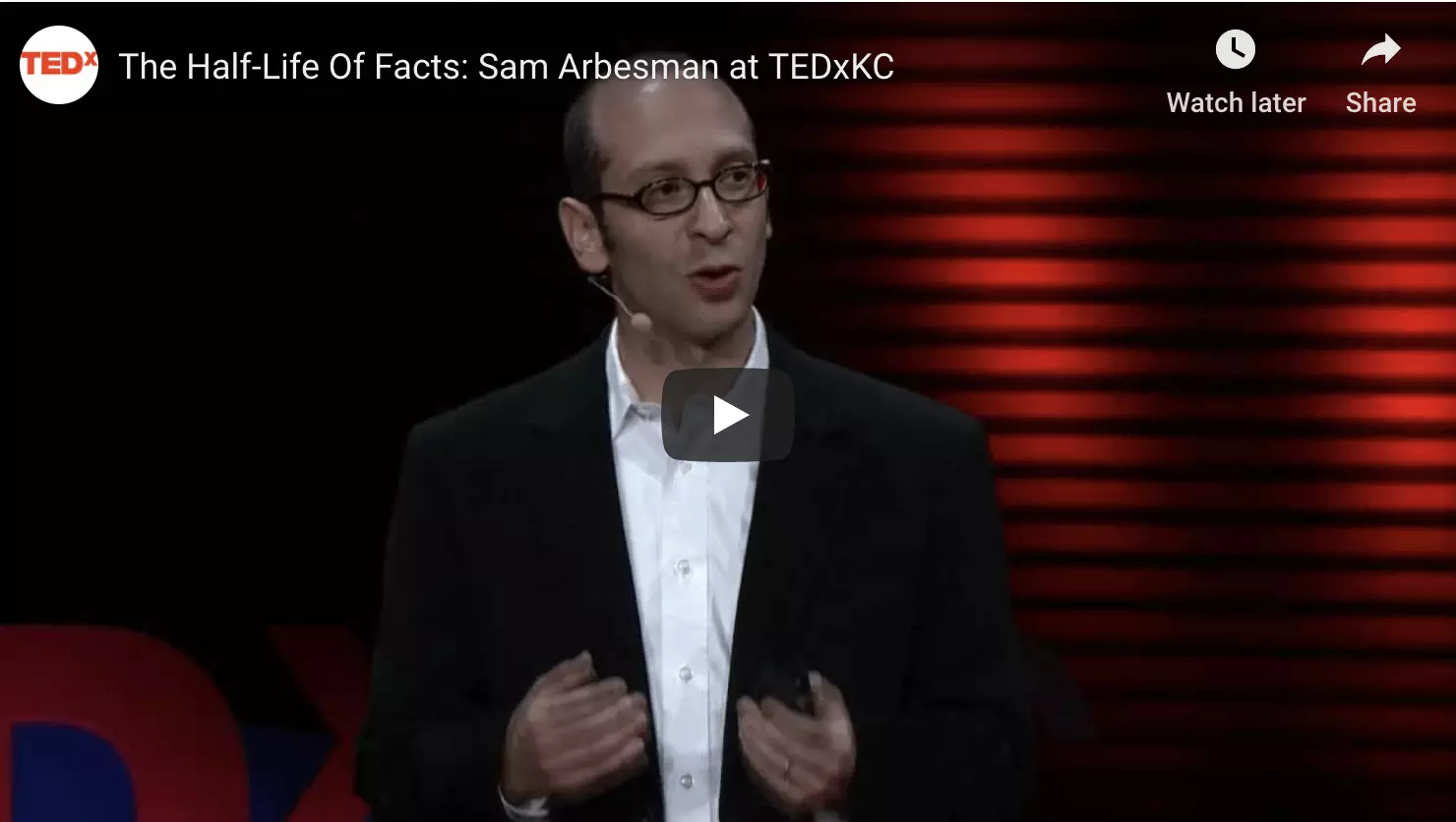The fixation of higher education (HE) on delivering content in the world of information abundance is baffling.
Most lecturers are driven to cover content that is accumulating at an ever increasing rate. A few years ago, I posted about the rate of the information explosion, and even though I said I only half believe the numbers, the inclusion of the concept of the half-life of knowledgemakes it easier to understand.
The half-life of knowledge is defined by Gonzalez as "...the time span from when knowledge is gained to when it becomes obsolete." A book out a few years ago by Sam Arbesman explores the half-life of knowledge and talks about the systematic way that this happens (see his TEDx talk below). In one example that he provides, the half life of knowledge is about 40 years. There are other examples that he alludes to in his talk that put the half-life in some areas to less than a decade.
Why, then, are we obsessed with the content? Why do we need to have an ever increasing number of lecturers to cover their tiny sliver of content in its fullness?
The content, up-to-date content, is out there if we need it. It is easier to find, easier to access, and easier to categorize than ever before in recorded history. It (the content) is expanding at an exponential rate, and we can't hope to ever keep up with it all. What HE lecturers don't seem to understand is that we don't have to, we (and our students) can find it if we need it.
What we need to teach in HE are the basic principles necessary to understand the esoteric details, how to find the esoteric details (if we ever need them), and how to critically evaluate what it is that we find. The obsession with the detail is mind-numbing. It is no wonder that the majority of our graduates finish their lives at university without having learned to think.
We need to teach our students how to take something that is already out there and create something new with it. A student in a university may not be at the cutting edge necessarily, but they can practice at being creative.
Allow our students to explore an area instead of herding them down the well-beaten pathway of what it is that we already know - while ignoring the half-life implications of what they are learning. Provide them with the higher order (as in higher education) thinking skills that are so desperately needed to tackle today's problems.
Stop the lunacy of the memorization treadmill (with a little bit more for a good grade) that currently defines higher education. We need to make our students better at something other than simply taking exams.

How have we made something as exhilarating as learning, as oppressive as education?




Leave your comments
Post comment as a guest